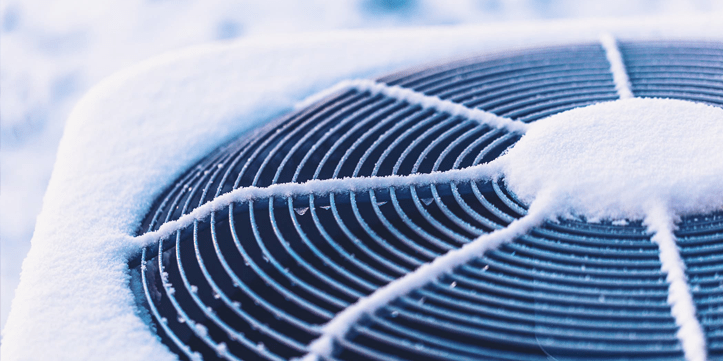
If you are reading this, you likely own an HVAC system that keeps your home or business comfortable during various seasons, but there may come a time when you need to winterize it. What does this mean? Simply put, winterizing an HVAC system is the process of preparing your heating and cooling equipment for the cold months ahead. If you are interested in learning why this is necessary or how to go about winterizing your HVAC system, then this article can help. Here are eight important reasons to get you started.
Preventing Freeze Damage
Winter is cold, and if your HVAC system isn’t adequately prepared for the elements, it could easily freeze during December through February (though winter weather can come earlier or later in different parts of the country). This ice buildup on the coils is typically not severe enough to instantly damage your HVAC unit but will likely cause your heating bill to skyrocket as it struggles to keep up with demand. With that said, preventative measures like these can go a long way towards safeguarding your investment.
Preserving Performance & Efficiency
Another reason to winterize your HVAC system is that it will help to preserve its performance and efficiency. This is especially true when:
· You live in an area where the winters are particularly cold; and/or
· You do not use your heating or cooling system during the summer months.
If you notice a drop-off in either of these areas, then the chances are good that you have issues with dirt, dust, debris and other buildup interfering with your HVAC unit’s function. By taking some time out of each year to bring in a professional who can thoroughly clean and inspect your system for proper operation, you can ensure that it stays at peak performance throughout the entire year.
Restoring Performance
Another reason you may want to consider winterizing your HVAC system is that it can positively impact its ability to cool or heat your home. In many cases, this will come from the coils being cleaned and cleared of dirt, debris, and other materials. This helps restore their original function to do what they were designed for: turning warm air into cool air or vice versa, depending on the season. Also, remember that if leaves build up around your outdoor unit, it cannot work as efficiently as possible, which means a noticeable decrease in overall performance during those summer months when you need a/c most.
Ensuring Quality Indoor Air Quality
Finally, winterizing your HVAC system can positively impact the quality of the indoor air that you take in if you do not use it throughout the hot summer months. This is because when your HVAC unit sits idle for an extended period of time following a thorough cleaning and inspection, any mold or mildew that may have been present before being taken out at this visit will certainly either be killed off or significantly reduced if left untreated. In many cases, it will kill off between 90-95% of any harmful bacteria or fungus that it comes into contact with, so this alone should give you peace of mind knowing that your home/office is much safer to breathe in at this point even without running your HVAC system.
Avoiding Damage From Insects
Leaving your HVAC system outside during the winter months can have a negative impact on its overall condition if you live in an area where insects are prevalent. Common sense tells us that any exposure to rain, sleet, snow, ice, or freezing temperatures will certainly not bode well for your HVAC unit, so it should be protected from these elements to avoid compromising its integrity.
Removing Any Water Condensation
By leaving your HVAC system exposed throughout the winter months, you run the risk of allowing water condensation (which is typically unavoidable regardless of how hard you try) to build up over time. As this moisture begins to accumulate inside your entire heating and cooling system, it can put your family or employees at risk of serious illness. This is because this buildup can easily turn into a black mold that has been known to cause pneumonia and severe respiratory issues when not treated in a timely fashion.
Avoiding Early Wear & Tear
Winterizing your HVAC system also helps prevent early wear and tear because it is kept out of harm’s way during the winter months. With that said, you will likely notice any abnormalities once the weather warms up enough for you to run it again to keep your home or business comfortable. These abnormalities are most often seen in any frayed wiring insulation around the outdoor unit/s as well as patches of rust on metal coils inside of your HVAC unit.
Ensuring Efficient Operation in Future Seasons
Finally, winterizing your HVAC system can also be useful for helping to maintain its overall function in the future because it makes sure that all of the components are properly lubricated/lubricated and tested before being put into storage for an extended period of time. Doing this will not run the risk of having any faulty circuit boards or poorly functioning parts that can cause complications (and often do over time).
This is why you should always make sure that the professionals come out during springtime to clean up your entire heating and cooling system so that it can perform better than ever when summer rolls around once again. This provides a much healthier and more efficient means of staying cool when the weather is at its hottest and also provides heat in the colder months.
If you need help winterizing your HVAC unit, reach out to the team of experts at Austin AC today. Our team can provide you with an inspection, cleaning, and maintenance to ensure that your home or business is the most comfortable space possible.
